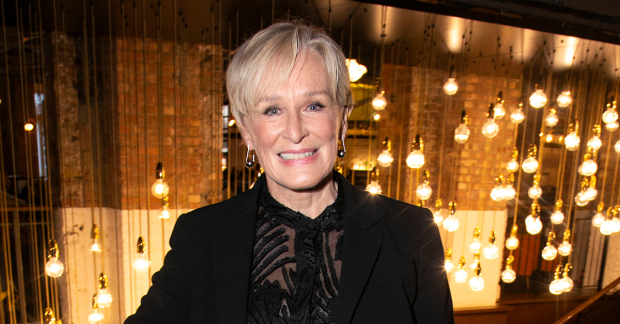High Society
In an autumn notably absent of the opening of any major musical productions, the sole new entry is the rather belated arrival of a stage version of the 1956 Cole Porter movie musical High Society that was first seen at the Open Air Theatre, Regent’s Park two years ago.
Ian Talbot‘s production moves indoors to the Shaftesbury Theatre in an almost entirely re-cast staging (only Claire Redcliffe as the irritating younger daughter survives), in the first West End transfer from the Park in the 78 years the Open Air Theatre has been operating. But whether it’s a good advertisement for the usually reliable summer entertainments that are presented there is not entirely clear.
Its cause is not helped by the stunt casting of Jerry Hall, who turns a knowing, forgiving eye on her husband’s infidelities and cries to a prying journalist, “Is there no such thing as privacy?” How resonant such situations and phrases must be to a woman who has lived her life in the public eye, having to forgive and forget the public philandering of her former rock star husband Mick Jagger. But here she’s the rather unconvincing matriarch of the Lord family, moving too rigidly around the stage and providing a feeble excuse for singing that is nearly as risible as that heard from Simon Callow in The Woman in White – though mercifully less frequent.
As a clothes horse from her more accustomed fashion model role, Hall wears Paul Farnsworth‘s costumes with undoubted elegance. But hers is a subsidiary role, not at all justifying her top billing. The plot in fact revolves around her willowy daughter Tracy (the sometimes shrill Katherine Kingsley, not helped by an echo that the sound designer insists on putting behind her voice), a society princess whose first marriage to CK Dexter (Graham Bickley) was ruined by his drinking. Tracy is about to get hitched again – if she herself doesn’t drink a way out of it.
As the impending nuptials are prepared, a duo from Spy magazine (Paul Robinson, who dances better than his cabaret crooner singing, and Ria Jones, who sings better than she acts), arrive to do a photo feature on how the upper class live – and sing “Who Wants to be a Millionaire?” in a typically savvy Porter list song that provides all the reasons why it would be so appealing.
The handsomely designed production retains some of the outdoor summer high spirits in Gillian Gregory‘s choreography. But it’s shocking to notice that it offers double the number of onstage chorus members as band members in the pit.
– Mark Shenton










